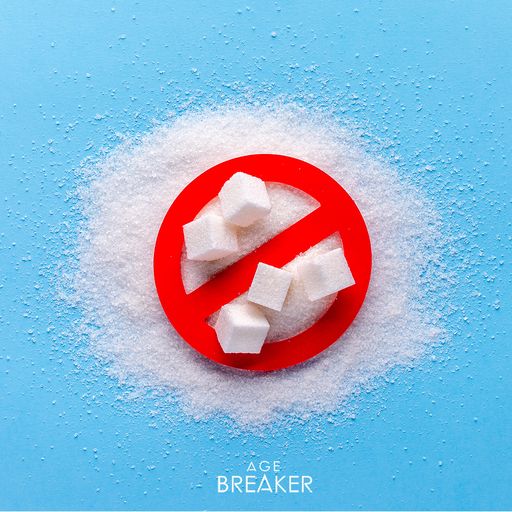A low-carbohydrate diet inhibits glycation and provides better control of aging than a low-fat diet.
Medical conventions in nutrition have been radically reversed over the past 40 years. It used to be thought that fat consumption was the cause of cardiovascular disease (1).
Since then, it has been shown that a low-fat diet is useless for the management of cardiovascular disease risk (2).
At the same time, research on low-carbohydrate diets has multiplied and shows that a low-carbohydrate diet (120 to 150 g per day) is effective in all parameters of the metabolic syndrome (blood glucose, weight, blood pressure, lipid profile, etc.) and in the prevention of the signs of aging and of various diseases related to aging (1) (3).
The quality of carbohydrates (foods with a low glycemic index), their order of ingestion (carbohydrates last in a meal) and the schedule of ingestion have also shown their interest.
The explanation given is that a low-carbohydrate diet maintains organ function by inhibiting glycation.
The adoption of a “locabo” (low-carbohydrate) diet is a key element in a strategy to prevent aging.
© AGE Breaker updated 02 05 2023
[Glycation is one of the major causes of aging. Resulting from the fixation of sugars on the proteins constituting the organism, glycation generates toxic compounds that cause cellular aging. Glycation is particularly involved in metabolic disorders, skin aging and cognitive decline.] [AGE BREAKER, patented nutritional supplements, based on rosmarinic acid, recognized by aging specialists around the world for their properties to reverse the effects of glycation.]
More on www.agebreaker.com
#agebreaker #glycation #antiaging #longevitymedicine #preventivemedicine #preventivehealth #skinaging #4pmedicine #advancedglycationendproducts
1: S. Yamada et Al. Consideration of adequate carbohydrate intake. Glycative Stress Research, 05 2018. https://doi.org/10.24659/gsr.5.1_1
2: D. Mozaffarian et Al. The 2015 US dietary guidelines: lifting the ban on total dietary fat. JAMA. 2015;313(24):2421–2422. doi:10.1001/jama.2015.5941
3: S. Yamada et Al. Changes in Body Weight, Dysglycemia, and Dyslipidemia After Moderately Low-Carbohydrate Diet Education (LOCABO Challenge Program) Among Workers in Japan. Diabetes, Metabolic Syndrome and Obesity, volume 14, 2021. https://doi.org/10.2147/DMSO.S317371









